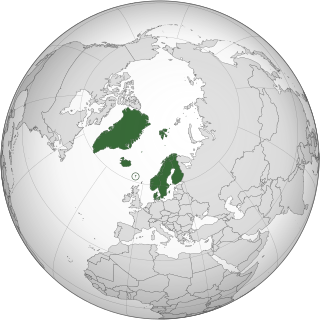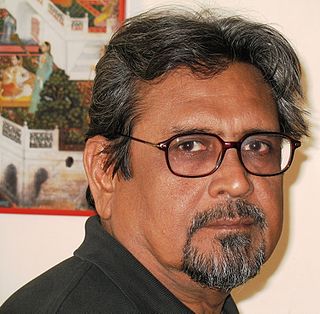History
The possibility to establish a Nordic centre in India was discussed already in 1995 during a meeting of the Nordic Association of South Asian Studies (NASA), an organization established in 1990 to promote exchanges between researchers and students in South Asia Studies. As a result of this and following discussions, the Nordic Centre in India (NCI) was founded in April 2001 at the inaugural General Assembly in Copenhagen as a consortium of leading universities and research institutions in Denmark, Finland, Iceland, Norway, and Sweden. The main objective of the consortium, which initially consisted of eight member universities and research institutions in the Nordic countries, was to strengthen and enhance Indian and South Asian studies in the Nordic countries and to support activities in India and with Indian counterparts.
The first years of NCI were devoted to the recruitment of new members of the consortium, to setting up the offices in India and in the Nordic region, identifying collaboration partners in India and tailoring shorter training programs and summer courses in India for students from the member universities. In 2004, NCI was approved by the Indian government and could set up a liaison office in India. A formal decision on the approval was taken by the Minister for Human Resources Development and publicly announced during an official visit to India by the Norwegian Deputy Foreign Minister in October 2004.

The Nordic Council is the official body for formal inter-parliamentary Nordic cooperation among the Nordic countries. Formed in 1952, it has 87 representatives from Denmark, Finland, Iceland, Norway, and Sweden as well as from the autonomous areas of the Faroe Islands, Greenland, and Åland. The representatives are members of parliament in their respective countries or areas and are elected by those parliaments. The Council holds ordinary sessions each year in October/November and usually one extra session per year with a specific theme. The council's official languages are Danish, Finnish, Icelandic, Norwegian, and Swedish, though it uses only the mutually intelligible Scandinavian languages—Danish, Norwegian, and Swedish—as its working languages. These three comprise the first language of around 80% of the region's population and are learned as a second or foreign language by the remaining 20%.
The Indian Council of Social Science Research (ICSSR) is the national body overseeing research in the social sciences in India. It was established in New Delhi in 1969.

Indian Statistical Institute (ISI) is a higher education and Research institute which is recognized as an Institute of National Importance by the 1969 act of the Indian parliament. It grew out of the Statistical Laboratory set up by Prasanta Chandra Mahalanobis in Presidency College, Kolkata. Established in 1931, this unique institution of India is one of the oldest institutions focused on statistics, and its early reputation led it to being adopted as a model for the first US institute of Statistics set up at the Research Triangle, North Carolina by Gertrude Mary Cox.
The Institute for Social and Economic Change (ISEC) is a social science research institute in Bangalore, India. Founded in 1972, it is the largest among the 27 institutions supported by Indian Council of Social Science Research (ICSSR).

Scandinavian studies is an interdisciplinary academic field of area studies, mainly in the United States and Germany, that primarily focuses on the Scandinavian languages and cultural studies pertaining to Scandinavia and Scandinavian language and culture in the other Nordic countries. While Scandinavia is defined as Denmark, Norway and Sweden, the term Scandinavian in an ethnic, cultural and linguistic sense is often used synonymously with North Germanic and also refers to the peoples and languages of the Faroe Islands and Iceland; furthermore a minority in Finland are ethnically Scandinavian and speak Swedish natively.

The Education and Research Network (ERNET) is an autonomous scientific society of the Ministry of Electronics and Information Technology, Government of India. ERNET has made a significant contribution to the emergence of networking in the country. It practically brought the Internet to India and has built up national capabilities in the area of net-working, especially in protocol software engineering. It is the first internet service in india. It has not only succeeded in building a large network that provides various facilities to the intellectual segment of Indian society—the research and education community, it has over the years become a trendsetter in the field of networking.

The Nordic countries are a geographical and cultural region in Northern Europe and the North Atlantic. It includes the sovereign states of Denmark, Finland, Iceland, Norway and Sweden as well as the autonomous territories of the Faroe Islands and Greenland, and the autonomous region of Åland.

The Indian Institute of Plantation Management (IIPM) Bengaluru is an autonomous institution set up by the Ministry of Commerce, Government of India in 1993 to provide professional management education in the field of plantations and associated agribusiness sector. The institute is jointly promoted by Coffee Board, Tea Board, Tobacco Board, Rubber Board & Spices Board and the industry Plantation Associations viz. Indian Tea Association &UPASI. IIPM is registered under Karnataka Societies Registration Act, 1960.
Centre for Excellence in Telecom Technology and Management (CETTM) located in Hiranandani Gardens, Powai, Mumbai is the telecom training centre of MTNL, the incumbent operator of Government of India (GOI). It was founded in 2003 as one of the largest telecom training centres in India and amongst the biggest in Asia. The Centre provides extensive training to corporate employees, students, and MTNL's internal employees in telecom switching, transmission, wireless communication, telecom operations and management.

Gundu Hirisave Rama Rao was born in Tumkur (Karnataka), India, on 23 August 1937. He is a scientist, entrepreneur and a tenured professor at the Academic Health Center, University of Minnesota. He and Professor John Eaton visited India in 1981 under a National Science Foundation sponsorship, to explore opportunities for collaborative research projects. They visited medical institutions from Kashmir in the north to Trivandrum in the south. He again visited India during 1990–93, as a professor and a senior consultant for the government of India under a United Nations Development Program (UNDP) called TOKTEN sponsored by the Council of Scientific and Industrial Research. He is a member of the Minneapolis University Rotary Club. He is listed as a Senior Fulbright Scholar in the Roster. He is an active member of Rotary E-Club, RI.3190, Bangalore, India.

Amrit Gangar is an Indian film scholar, historian, critic, curator and writer from Mumbai, Maharashtra, India.

Ferdinando Sardella is a Swedish scholar of the history of religions, Hinduism, and religious studies, the former director and coordinator of the Forum for South Asia Studies at Uppsala University.
The European Business and Technology Centre (EBTC) was constituted in 2008 as a programme co-funded by the European Union. It transitioned to an independent organisation in March 2016, continuing the EU mandate to facilitate Europe-India cross-border collaboration. EBTC as an organisation is coordinated by EUROCHAMBRES, the Association of European Chambers of Commerce and Industry.

V. R. Panchamukhi, is an Indian Economist and Sanskrit scholar. He was born on September 17, 1936, in Dharwad, Karnataka. He is the eldest son of Vidyaratna Shri R. S. Panchamukhi, an archaeologist and indologist and Sanskrit Scholar.
Nordic Institute of Asian Studies, or NIAS for short, is a university Institute for Asian studies of Copenhagen University in Denmark. The institute is located in Copenhagen and serve all five Nordic countries, comprising Denmark, Norway, Sweden, Finland and Iceland.

Indian Institute of Packaging (IIP) an autonomous body which was set up by the packaging and allied industries and the Ministry of Commerce, Government of India in 1966 under Societies Registration Act,1860 with the specific objective of improving the packaging standards and excellency in the country. There are permanent campuses of the institute in Mumbai, Delhi, Kolkata, Hyderabad, Chennai and Kakinada SEZ in East Godavari district with 25 acres (10 ha) of land and there is plan to open new campus in Guwahati and Lucknow.

Nansen East-West Dialogue Academy NEWDAY is a 10-day summer school which takes place annually at Nansen Academy in Lillehammer, Norway.












